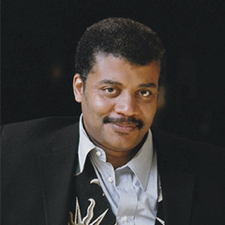Want to know what books Niall Ferguson recommends on their reading list? We've researched interviews, social media posts, podcasts, and articles to build a comprehensive list of Niall Ferguson's favorite book recommendations of all time.
1

In his book, Smith fervently extolled the simple yet enlightened notion that individuals are fully capable of setting and regulating prices for their own goods and services. He argued passionately in favor of free trade, yet stood up for the little guy. The Wealth of Nations provided the first--and still the most eloquent--integrated description of the workings of a market economy. more In his book, Smith fervently extolled the simple yet enlightened notion that individuals are fully capable of setting and regulating prices for their own goods and services. He argued passionately in favor of free trade, yet stood up for the little guy. The Wealth of Nations provided the first--and still the most eloquent--integrated description of the workings of a market economy. less 
Barack ObamaObama, unsurprisingly, appears to be more drawn to stories sympathetic to the working classes than is McCain. Obama cites John Steinbeck’s “In Dubious Battle,” about a labor dispute; Robert Caro’s “Power Broker,” about Robert Moses; and Studs Terkel’s “Working.” But he also includes Adam Smith’s “Wealth of Nations” and “Theory of Moral Sentiments” on his list. (Source)

Neil deGrasse TysonWhich books should be read by every single intelligent person on planet? [...] The Wealth of Nations (Smith) [to learn that capitalism is an economy of greed, a force of nature unto itself]. If you read all of the above works you will glean profound insight into most of what has driven the history of the western world. (Source)
2

Leo Tolstoi, Louise Maude, Aylmer Maude | 4.26
War and Peace broadly focuses on Napoleon's invasion of Russia in 1812 and follows three of the most well-known characters in literature: Pierre Bezukhov, the illegitimate son of a count who is fighting for his inheritance and yearning for spiritual fulfillment; Prince Andrei Bolkonsky, who leaves his family behind to fight in the war against Napoleon; and Natasha Rostov, the beautiful young daughter of a nobleman who intrigues both men.
As Napoleon's army invades, Tolstoy brilliantly follows characters from diverse backgrounds—peasants and nobility, civilians and... more War and Peace broadly focuses on Napoleon's invasion of Russia in 1812 and follows three of the most well-known characters in literature: Pierre Bezukhov, the illegitimate son of a count who is fighting for his inheritance and yearning for spiritual fulfillment; Prince Andrei Bolkonsky, who leaves his family behind to fight in the war against Napoleon; and Natasha Rostov, the beautiful young daughter of a nobleman who intrigues both men.
As Napoleon's army invades, Tolstoy brilliantly follows characters from diverse backgrounds—peasants and nobility, civilians and soldiers—as they struggle with the problems unique to their era, their history, and their culture. And as the novel progresses, these characters transcend their specificity, becoming some of the most moving—and human—figures in world literature. Translated by Louise and Aylmer Maude.
Three-Volume Boxed Set less 
Vanora BennettAlthough it was published in 1869, War and Peace deals with events half a century earlier. This makes it one of the first historical novels – and, all these years later, it’s still the greatest. (Source)

Tendai HuchuTolstoy does something which is very unusual in War and Peace and which, for his time, was pretty profound: he sees the conditions of the ordinary soldier on the battlefield. (Source)

Niall FergusonAs a middle aged man, I react differently to Tolstoy than I did when I first read War and Peace at about 15. (Source)
3

John Maynard Keynes | 4.18
This treatise, written in 1923 by the renowned proponent of deficit spending, is devoted to the need for stable currency as the indispensable foundation to a healthy world economy. Keynes begins by laying out data showing the serious fluctuations in the value of money that began in 1914 and subjected North America, Europe, and India to injurious cycles of inflation and deflation. He describes the various effects on investors, business people, and wage earners of this erratic underlying influence and makes it clear that policies limiting such fluctuations must be implemented to ensure greater... more This treatise, written in 1923 by the renowned proponent of deficit spending, is devoted to the need for stable currency as the indispensable foundation to a healthy world economy. Keynes begins by laying out data showing the serious fluctuations in the value of money that began in 1914 and subjected North America, Europe, and India to injurious cycles of inflation and deflation. He describes the various effects on investors, business people, and wage earners of this erratic underlying influence and makes it clear that policies limiting such fluctuations must be implemented to ensure greater economic and social stability. He finds the gold standard, which was used as the basis of value for many currencies, including the U.S. dollar at that time, to be ultimately unreliable since gold itself is also prey to unstable valuations. In the final analysis he recommends the implementation of policies by Great Britain and the United States that aim at achieving stability of the commodity value of the dollar rather than the gold value. "[T]he ideal state of affairs," he argues, "is an intimate co-operation between the Federal Reserve Board and the Bank of England, as a result of which stability of prices and of exchange would be achieved at the same time."
As always, Keynes proved to be amazingly prescient: The United States did eventually abandon the gold standard and the U.S. dollar is indeed the basis of currency values today. Keynes's brilliant, clear analysis of the world monetary situation at the beginning of the twentieth century, with his many suggestions and his masterful elucidation of economic principles, is still well worth reading today at the beginning of the twenty-first century. less 
Niall FergusonThat’s true up to a point. The problem is that most developed countries went into the financial crisis with structural deficits in their budgets. When you start from that position, it’s much harder to make Keynesian policies work. (Source)
4

Karl Kraus, Alexander Gode, et al. | 4.13
Kraus' masterpiece is generally considered to be the massive satirical play about the First World War, which combines dialogue from contemporary documents with apocalyptic fantasy and commentary from two characters called "the Grumbler" and "the Optimist". Kraus began to write the play in 1915 and first published it as a series of special Fackel issues in 1919. Its epilogue, "Die letzte Nacht" ("The last night") had already been published in 1918 as a special issue.
This edition was abridged and edited by Frederick Ungar. It contains an introduction by the editor and critical... more Kraus' masterpiece is generally considered to be the massive satirical play about the First World War, which combines dialogue from contemporary documents with apocalyptic fantasy and commentary from two characters called "the Grumbler" and "the Optimist". Kraus began to write the play in 1915 and first published it as a series of special Fackel issues in 1919. Its epilogue, "Die letzte Nacht" ("The last night") had already been published in 1918 as a special issue.
This edition was abridged and edited by Frederick Ungar. It contains an introduction by the editor and critical analysis by Franz H. Mautner. less 
Niall FergusonWhen I was an undergraduate I went to the Edinburgh festival, and saw a brilliant production of The Last Days of Mankind which changed my life. I was entirely riveted by Kraus’s central theme, which is that the First World War could to some extent be understood as a media-driven event. Kraus’s conceit is that the war was such a great story for the Neue Freie Presse – the New York Times of Vienna... (Source)
5
R. G. Collingwood, Stephen Toulmin | 4.45
Introduction by Stephen Toulmin more Introduction by Stephen Toulmin less 
Niall FergusonI discovered this book fairly late in life, after I had written Virtual History, which was my first standard work of historical philosophy. It was only after I came to Harvard [to teach] that I sat down and read his wonderful autobiography. I can’t think of many experiences in my life more exciting than that. It’s a tremendously profound reflection on history and historical method. (Source)
Don't have time to read Niall Ferguson's favorite books? Read Shortform summaries.
Shortform summaries help you learn 10x faster by:
- Being comprehensive: you learn the most important points in the book
- Cutting out the fluff: you focus your time on what's important to know
- Interactive exercises: apply the book's ideas to your own life with our educators' guidance.


